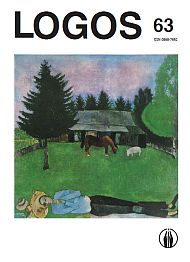Freudo Santykiai Su Neklasikine Mąstymo Tradicija Ir Jo Metafilosofijos Personažai
Freud‘s Relations with the Tradition of Non-Classical Thinking and the Paragons of His Metaphilosophy
Author(s): Antanas AndrijauskasSubject(s): 19th Century Philosophy, Contemporary Philosophy, Existentialism, Psychoanalysis
Published by: Visuomeninė organizacija »LOGOS«
Keywords: psychoanalysis; Freud; metapsychology; Schopenhauer; Nietzsche;
Summary/Abstract: The article analyzes the metapsychological theory of Austrian neurologist, psychiatrist, psychologist, and initiator of psychoanalysis, Sigmund Freud. The article focuses on the philosophical sources and foundations of the theory which made a powerful impact on Western culture. Freud borrowed many ideas from non-classic philosophy and incorporated them into his own theory of psychoanalysis. In the structure of human psyche, Freud distinguished two conflicting drives: Eros and Thanatos, as fundamental instincts. The first is the life drive for survival and procreation; the second is the death drive for destruction and self-destruction. What Freud writes of them in his works resembles aspects of Schopenhauer’s The World as Will and Representation and Nietzsche’s The Birth of Tragedy but Freud claims that he formulated the concepts of the drives before he became acquainted with these works
Journal: LOGOS - A Journal of Religion, Philosophy, Comparative Cultural Studies and Art
- Issue Year: 2010
- Issue No: 63
- Page Range: 18-30
- Page Count: 13
- Language: Lithuanian

